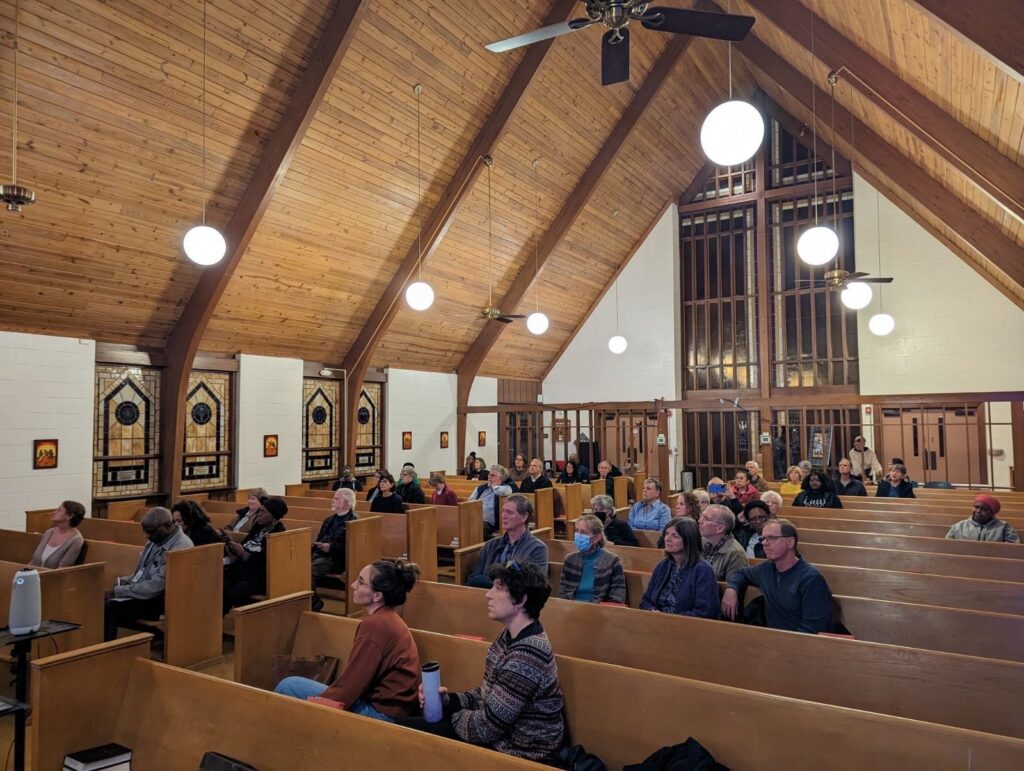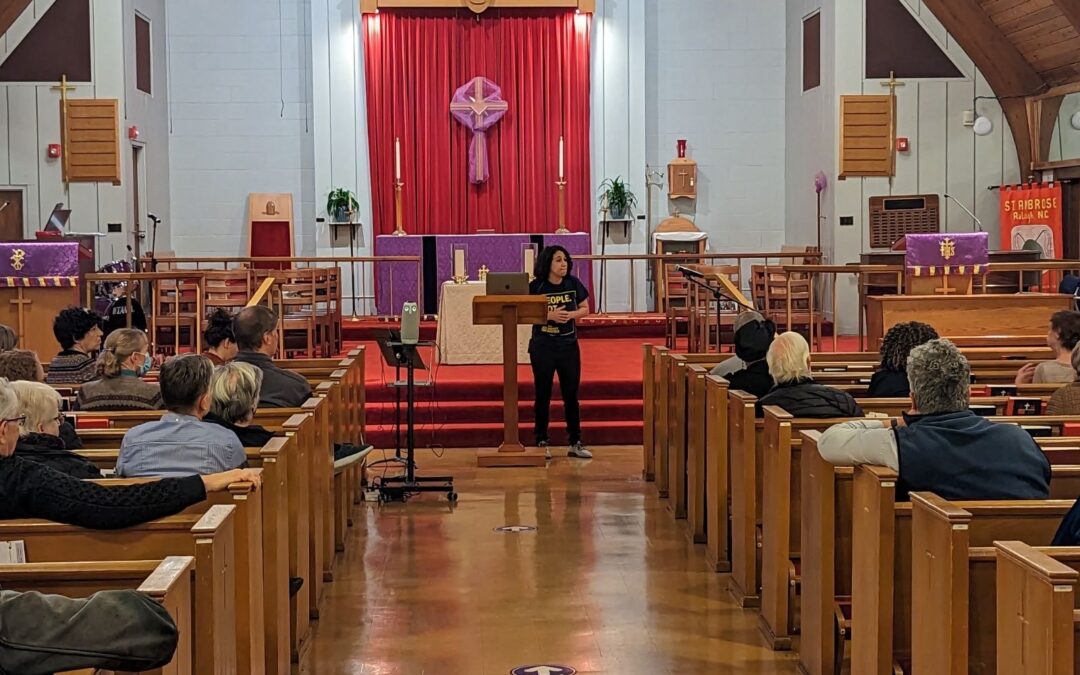On Monday, Jaelyn Miller answered the invitation of the Fayetteville City Council to present the framework of Alternative Crisis Response, why this program works to save lives and save resources, and why everyone supports the program—including police. Police know that mental health crisis calls need qualified and empathetic mental health support, not guns and handcuffs. Ten percent of 911 calls involve mental health or substance use. Alternative Crisis Response responds to these calls with tailored treatment that reduces incarceration and hospitalization and saves resources for a city.
After the presentation, Fayetteville City Council invited Emancipate NC back to a public safety summit, and the Fayetteville police chief pledged his support for the program.

A local Fayetteville newspaper covered Emancipate NC’s presentation to City Council:
Miller said, contrary to popular belief, alternative response programs are not replacing law enforcement or defunding police departments. Rather, Miller said, the programs are geared toward freeing up police resources for crime-solving, reducing negative interactions between police and people with mental illnesses, and reducing overcrowding in jails and emergency departments.
Miller said research shows alternative response programs have saved taxpayer money and decreased the overall crime rate.
“What we see from these programs is that when resources, police resources, are not being depleted by these mental health calls, they’re able to be diverted and focused on violent crime,” Miller said. “And that’s why we see a reduction in the crime rate.”
Meanwhile, last week, the Raleigh HEART Coalition held a community listening session. Devon Ross with ONE Wake, Melissa Florer-Bixler with the Raleigh Mennonite Church, and Jaelyn Miller with Emancipate NC, discussed HEART’s partnership with the city, answered questions about the Alternative Response Program, and received community feedback. The event at Saint Ambrose Episcopal Church drew over 80 people because Alternative Crisis Response is a vital program that the community needs. Mental health and substance abuse crises need de-escalation and holistic support. We can save lives!
Don’t miss your final chance to give input to the City of Raleigh on the HEART proposal by filling out this survey→
